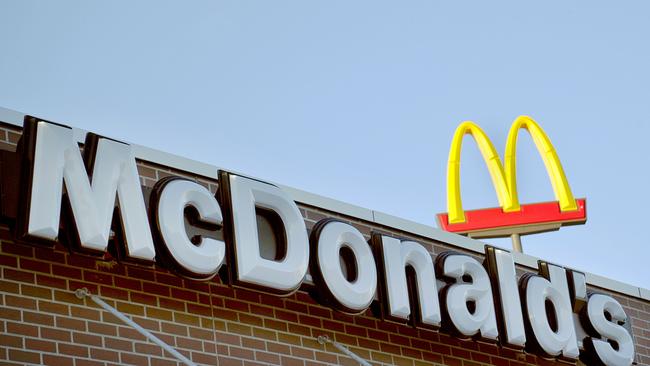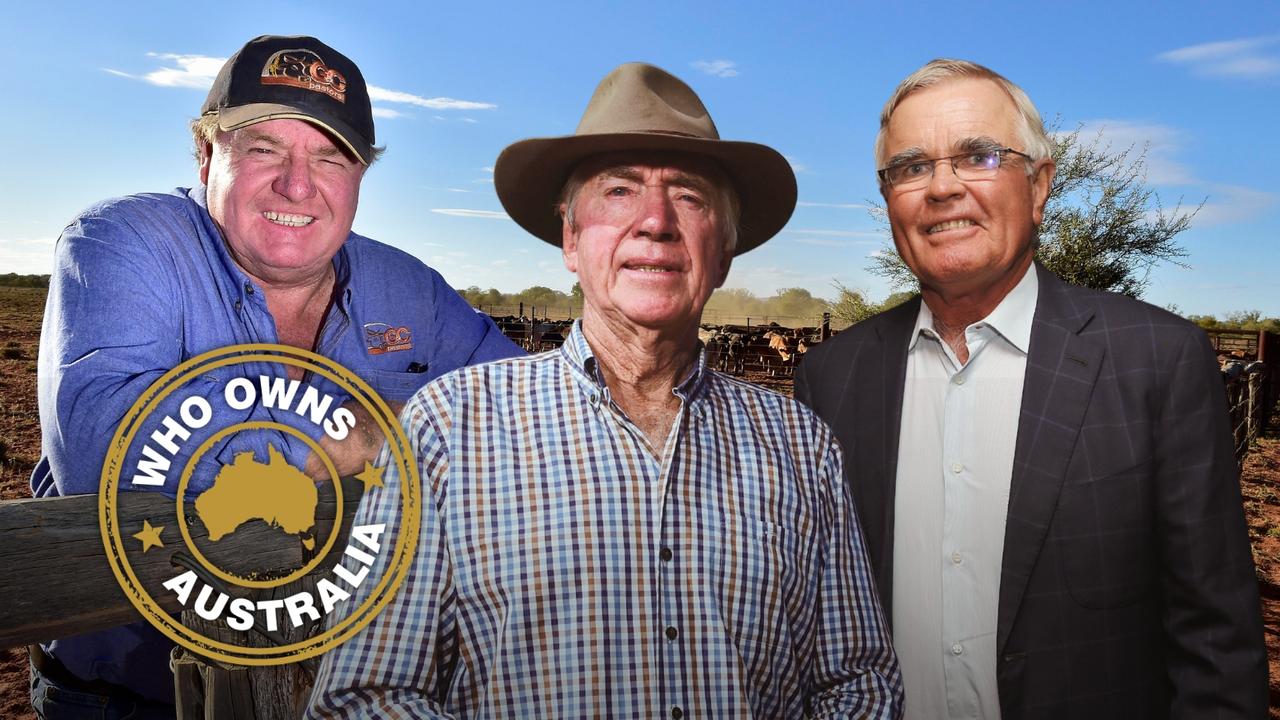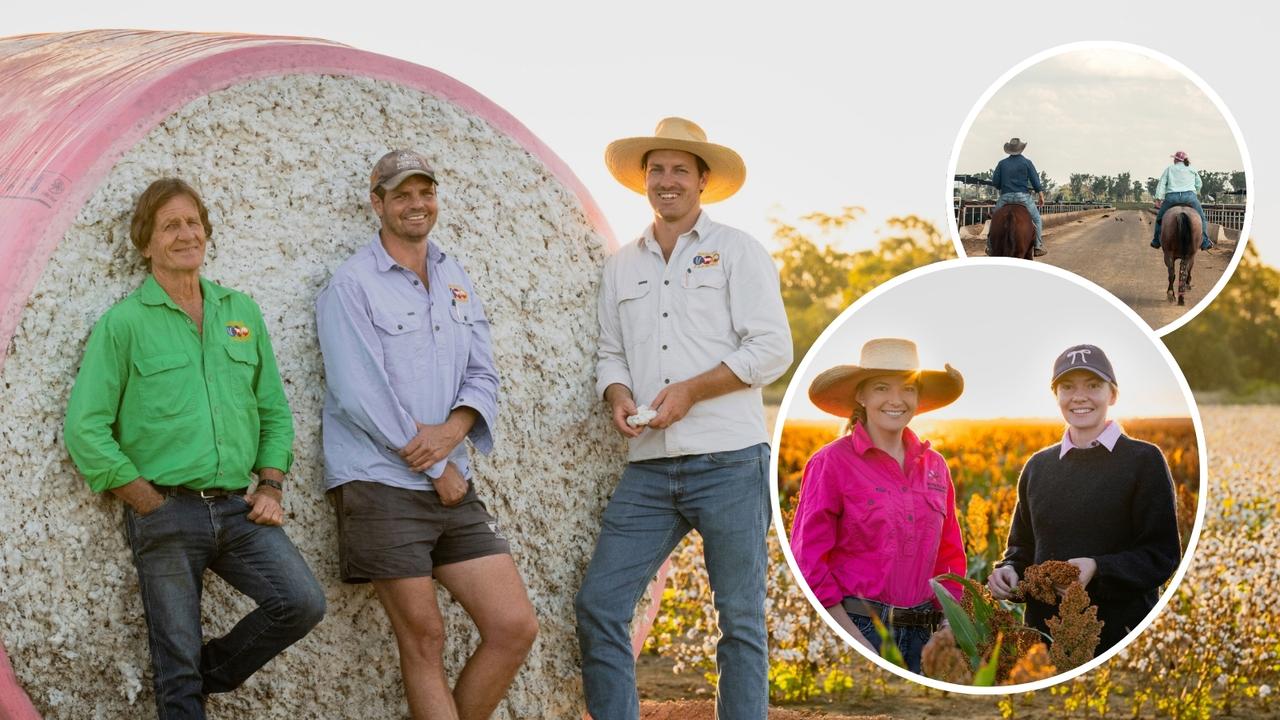McDonald’s, Domino’s Pizza sign up to Australian Government’s country-of-origin labelling
Pressure is growing on fast food outlets to reveal the country of origin of their ingredients after two household names signed up to the scheme.

YAGOONA, a perfectly ordinary suburb 20km southwest of Sydney’s CBD, was the site of a revolution on a summer’s afternoon at the tail end of 1971.
It wasn’t linked to the Vietnam War, a conflict Australia was already extricating itself from. Unlike many disruptions in that tumultuous era of social change; sex, drugs and rock and roll weren’t on the menu. But salt, fat and sugar certainly were.
Ronald McDonald sent a collective shiver down the spine of Sydney’s fish and chip shop operators by attaining his first clown-sized foothold on the fast food market down under. Within two years, McDonald’s had pierced the Melbourne skyline with its golden arches, opening in Glen Waverley in 1973. Today, there’s 970 outlets nationwide.
The first Australian McMenus underscored the challenges of transplanting San Bernardino-style to a country that had grown up on meat pies and Chiko Rolls. For instance, french fries, which sold for 15c, were advertised in brackets as chips.
In the five decades since, the Ray Kroc juggernaut has continuously worked to Australianise its all-American image.
It whacked a slice of beetroot in its burgers and labelled them a ‘McOz’. Management picked up on the informal ocker branding – Macca’s – and clunkily adopted it for themselves.
While these moves were cosmetic, a decision by McDonald’s head office earlier this year to further ingratiate itself with hungry Australians has won praise from Canberra.
Federal Agriculture Minister David Littleproud has long encouraged the nation’s fast food fiefdoms to voluntarily outline how much of their hamburgers, sandwiches and milkshakes contained Australian produce.
OUR FAST-FOOD APPETITE
Percentage of Australians who visited a fast-food outlet in a six-month period
1 McDonald’s 52.7%
2 KFC 40.8%
3 Subway 30.8%
4 Hungry Jack’s 29.0%
5 Domino’s Pizza 28.3%
6 Red Rooster 16.3%
7 Grill’d Hamburgers 12.2%
8 Nando’s Chicken 10%
9 Pizza Hut 10%
10 Noodle Box 7.5%
Source: Roy Morgan Poll 2018
Since July 2018, country-of-origin food labelling has been mandatory for most food sold in retail stores, markets and vending machines, whether packaged or unpackaged. However, takeaway chains, restaurants or cafes are not bound by the labelling scheme.
Clarity of country of origin is a big deal for Australia’s agricultural sector. A Roy Morgan poll in 2018 found more than half of all Australians had visited the golden arches in the six month surveyed period. In the same lunch litmus test, nearly 41 per cent of respondents had chowed down on a KFC meal while roughly 30 per cent had sampled a foot-long or six-inch sub from Subway.
With this in mind, Mr Littleproud held initial talks in May 2018 – securing Domino’s Pizza as his first recruit four months later. “I asked fast food stores to give their customers country-of-origin information, and Domino’s delivered,” the Minister declared in September 2018.
The pizza giant – originally from Ypsilanti, Michigan – disclosed how much of its cheesy offerings were dinky-di Australian.
Carnivorous offerings, such as supreme and eight meats pizzas, are at least 65 per cent Australian made; herbivorous varieties such as Spicy Veg Trio are more than 80 per cent homegrown. (Domino’s also discloses on its country-of-origin web page that the chain’s chips and churros are made in the US, and, ironically, its Dutch pancakes are made in Belgium).
Despite these tasty information nuggets from Domino’s, McDonald’s kept Mr Littleproud waiting on his takeaway order until earlier this year. On its newly-launched website in April, the junk food giant revealed its Big Mac is made with 82 per cent domestically-sourced produce, its apple pie containing at least 93 per cent and thickshakes at least 87 per cent.
Ronald McDonald was the big cheese the Agriculture Minister was after and, he knows with the golden arches behind him, there’s political pressure for other brands to follow. “You’ve got to wonder why these national fast-food outlets won’t follow McDonald’s and provide country-of-origin labelling for their products,” Mr Littleproud says. “Letting consumers know the Australian content of their products is good for their customers, good for the business and good for our farmers.”
Hungry Jack’s, KFC, Red Rooster and Subway are yet to sign up to the Federal Government initiative.
Subway Australia public relations manager Amanda Templeton would not stipulate how much domestically-sourced material is contained in their sandwiches.
Instead, she says: “Subway proudly sources from more than 80 Australian producers to provide guests with freshly-made food. Our freshness is on display for every guest who comes to our restaurants and we proudly promote our local sourcing.”
Likewise, Craveable Brands spokeswoman Lisa Owen refused to say how much Australian-sourced ingredients are contained in the company’s Red Rooster offerings. She says the fast-food conglomerate were “proud supporters of many Australian businesses and primary producers who supply our brands Red Rooster, Oporto and Chicken Treat.”
“We take pride in our Australian-first approach and can confirm that the produce in our burgers – the chicken, the lettuce, the buns, the sauces including the famous Oporto chilli sauce – are supplied by businesses and producers across Australia,” Owen says.
KFC and Hungry Jacks management did not respond to questions for this article. But Colonel Sanders and Australia’s burger king may need to provide some answers soon, with the nation’s agricultural lobby groups unhappy over how the fast food industry has failed to come to the country-of-origin table.
“Australians deserve to know where their food comes from, and how much of it is truly sourced from our local farmers,” Australian Dairy Farmers president Terry Richardson says. “The ADF is urging all fast food chains to do the same. It’s the honest thing to do. We also welcome any opportunity to work with government on addressing anomalies in country-of-origin labelling, such as the use of minor ingredients in cheese production.”
The grains sector also says it’s time for fast food brands to follow the lead of McDonald’s and Domino’s.
GrainsGrowers chief executive David McKeon says: “With Australia’s reputation as a clean, green producer, our grains are world-class and acknowledging their country of origin would be a win for retailers and consumers alike.”
AusVeg chief executive James Whiteside echoes the calls of his dairy and grains counterparts.
“Fast food retailers should be upfront as to their food’s origin, particularly given Australian farmers produce enough food for the domestic market and to continue to supply international markets,” he says. “Australian consumers have a strong preference to buy locally-grown food and they have a right to know where their food comes from.”
MORE AGJOURNAL
THE TOP 10 AGRICULTURE TRENDS OF THE NEXT DECADE
AUSSIE FARMERS LEADING THE AGTECH MOVEMENT
‘PULSES ARE UNDERRATED’: CROP PUMPS LIFE INTO GRAIN INDUSTRY



